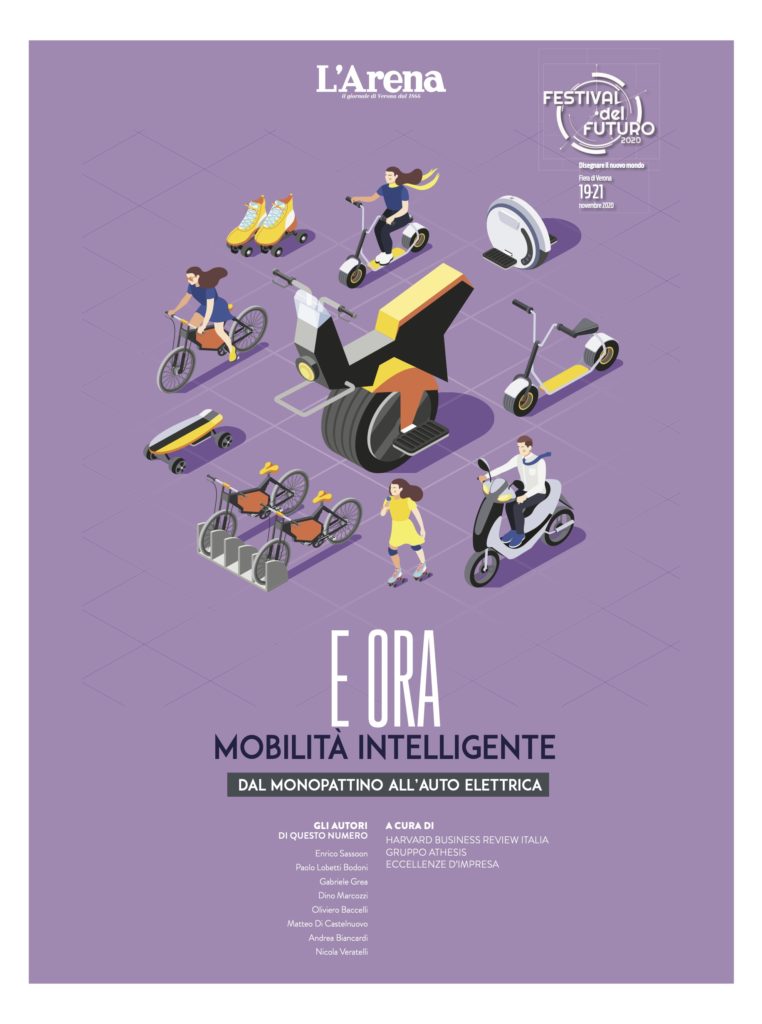
When it comes to innovative mobility, a first concept must be affirmed and clarified: we will not be able to have better, more intelligent mobility, if at the same time a better, more intelligent city will not evolve. That is, a smart mobility in a smart city. As clearly emerges from the articles of this Special, public and private actors need to coordinate to first define and then develop a real ecosystem that is both economic, technological and territorial.
Private initiatives in the field of transport, in terms of travel and technologies, can do a lot. But the single element of progress will never be enough to build a truly useful and advanced alternative. A change of perspective is indispensable and this requires a transformative effort by public administrations, businesses and, without a shadow of a doubt, also the mentality of citizens. Without a coordinated and shared change, the ecosystem cannot be born and we will certainly have better tools and a little more liveable cities, but the goal of smart mobility in the smart city can never be achieved.
The evolution underway, however, bodes well. Many cities, in Europe and elsewhere, are carrying out projects of great interest whose adoption in other contexts can be chosen and imitated using the accumulated experiences. The components of this evolution are already largely present, since in recent years new modes of transport have spread to which citizens have rapidly adapted, such as sharing of vehicles, the use of increasingly effective information systems and apps, the adoption of increasingly advanced vehicles, the exploitation of increasingly sophisticated connections.
In an increasing number of urban contexts, mobility services are spreading thanks to the collaboration between public bodies and private companies, and the idea of mobility as a service is consolidating: i.e. the possibility of choosing the best travel solution in a combination of different means, personal but above all shared, supported by powerful enabling technological infrastructures. Normally able to allow not only a lower and better environmental impact, but also significant savings for users. Therefore, we are getting used to the mosaic of vehicles such as scooters, bicycles, scooters and shared cars, increasingly already electrified, in combination with different public transport in an integrated mobility framework. It is a creeping revolution that, as citizens, we live without particular shocks but which, at the same time, requires a quantum leap in mentality not only to use them to the fullest, but also and above all to become active and collaborative subjects without which exercise it would be if not futile, certainly less useful.
Naturally, the ongoing evolution of vehicles for movement, shared or not, is at the center. And in the first place is the electric car with all its various problems. In the next few years, all the car manufacturers in the world will replace, first partially then totally, traditional vehicles with electric vehicles. Over the next five years there will be a boom and issues that today constitute severe limitations will be resolved: the price of vehicles, which will tend to drop; the increasingly widespread charging infrastructures; and batteries, which will be cheaper and last longer.
The use of complementary means will also grow progressively first and then more generalized, such as autonomous cars and drones both on land and in the sky. Here, too, the theme of connections is crucial and prepares the ground for a mobility that is now mainly experimental but which will soon become a daily reality.
Therefore, it is not an exaggeration to speak of a real revolution in progress. It must be understood and accompanied but, according to the experts 'opinion, the mobility in cities that are more adequate and attentive to environmental issues and citizens' lives is evolving rapidly and will soon reach important goals. Which will change us, hopefully for the better, work and life.
Enrico Sassoon
Chief Editor of Harvard Business Review Italy
Summary
Insert no. 03 - IT'S NOW INTELLIGENT MOBILITY
The new trends in smart mobility around the world by Paolo Lobetti Bodoni
The challenges and opportunities of smart innovation by Gabriele Grea
The development of sustainable mobility in Italy by Dino Marcozzi
The real costs of electric mobility by Oliviero Baccelli
Electric cars - The strategic node of batteries by Matteo Castelnuovo and Andrea Biancardi
Connected vehicles and smart cities by Nicola Veratelli





